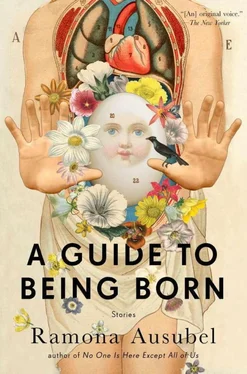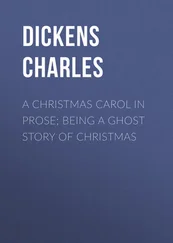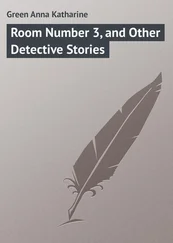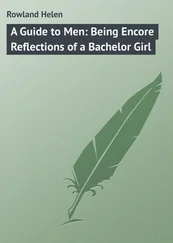“I would rather we went back,” she managed. “We’re very far away from anything.”
“The tide is against us. The dangerous thing would be to go back,” he began, drying his glasses on a towel.
She insisted—she told him she couldn’t stand it out there. “Please,” she said.
He put the sail up and started the journey back. Alice, inside, did not see the work he did to take her in. She did not see the boat list and scoop water onto his bare feet.
With the sound of the dock squeaking against the hull, they lay side by side, he reading by candlelight, she pretending to sleep, with only two ropes holding them steady.
In the morning she tried to be a wife. She got an egg from the small icebox and cracked it into the pan, but the yolk broke and bled. The yellow heart ran rivers over the white. She turned the heat off and left it there, dying. Alice jumped in the water in her nightgown and swam to the small dinghy attached to the hull of their boat, where she bobbed, her clothes sucked to her body.
“What are you doing?” her husband yelled when he found her. She did not answer. He reeled her craft in until it knocked against his. “Did you swim out?” he asked, putting his hands on her wet head. “You could have put on a bathing suit.”
“I am not a good wife.”
“You can learn.” They sat in silence, the sound of water dripping off her and landing in the belly of the vessel. “You stay here in your own little ship. You don’t have to be anybody’s wife here. I’ll go make myself something to eat.” He patted her and returned to his own boat, letting her rope go until she drifted back out to the maximum ten feet. The sea was a flat sheet going on until it couldn’t anymore, until the sky pinned it down.
This was the beginning of a marriage that would continue into her fifties, when he left for good to start another family. She is sorry that she was not the one who pressed herself up against him to keep him warm when he was dying. Instead they corresponded by mail, and twice she sat on the porch swing outside his house with him and they talked about their children and their grandchildren, those lives they had made together, while his wife kept herself busy in the house.
Her second marriage was also more than thirty years long. He had said, “Please, there is no reason not to marry me. I am smart and kind and I will do the dishes.” This wedding, just like the first, took place at her parents’ house, only this time she was driven off in a golf cart instead of put on a sailboat.
They were retired for almost the entire duration, and for years before he died, they traveled often by freighter, where they were the only two paying passengers, sitting together on deck and doing the Jumble while the crew called commands to one another. Her husband couldn’t see well as he got old, so she’d narrate the journey for him. “On the left there is an old fishing shack. It has fallen down on one side and the porch now hangs into the water. There are vines pulling it under. Two big birds are standing on the roof.”
“Are they egrets?” he wanted to know.
“No, they are great blue herons.”
“Oh, I was picturing egrets.”
“Well, they aren’t. But they are very nice-looking.”
“I’m sure they are. I was just picturing egrets.”
“Well, it doesn’t matter now because that shack has passed. Now we are coming to a town. There are three little girls standing in the mud in their bathing suits, waving. Do you hear them calling to us?”
“Sort of.” They both listened hard, the young voices making their way over the surface of the water.
“Do they have bicycles?” he asked.
“Why would they have bicycles?”
“Or fishing poles? How did they get there?”
“They just have hands. They are only trying to say hello.”
“Well, hello then!” he called back. “Hello!” The two of them called together, their arms working back and forth like a pair of windshield wipers, trying to clear the view ahead.
• • •
WHEN ALICE’S CIRCUMNAVIGATION takes her around to the bow of the ship, she finds the proactive grandmothers surrounding the crates like flies. They are furious with curiosity about what is inside, what they are carrying with them on some unknown body of water. “Perhaps there are beautiful Chinese green beans or Italian leather coats,” says one. “Maybe they are full of the most luxurious furs,” tries another. “I think it will be jewels!” shrieks another, though this seems optimistic to everyone else.
What they find are none of those things. When the lock springs open on the first crate and the doors too, what they see inside are rows of white. Someone pulls, and to her feet fall five toilet seats. They are the padded kind, sighing under the weight of the sitter. There must be hundreds of them in there. This crate is quickly abandoned in disappointment, though Alice has put a toilet seat over her head and wears it, to everyone’s enjoyment, like a necklace.
In the next crate they find child-size wooden baseball bats with the words “Sluggy Bat” written in wide cursive. This find interests no one, except one short lady who inches a bat out of the middle and swings it, remembering playing with her sisters in the street and pleased to find that it is a nice weight for her.
Crate number three is full—full!—of yellow roses. The grandmothers hug them in bundles to their chests, their arms pricked by the thorns. They distribute the flowers around—handing the wilting bouquets out to their fellow passengers until they all look like prom queens ready to dance their victory dance, the thorns freckling their arms with blood.
• • •
EVEN HERE, evening comes and then night. The grandmothers go inside to the galley, where they make their way through the first of many cases of canned peaches, sharing a single can opener found in a drawer. They discover that the toilet seats improve the comfort of the sitter on hard benches. They begin and end card games and word games. They quiz one another on presidential trivia. They begin to slump, exhausted.
Around them are the roses on the floor, the countertop, the cheap wood tables with names carved into them—Danny and Phoung, Rocko, the shape of a penis now covered by some blooms. Roses are worn behind ears and tucked into buttonholes. They smell as they are supposed to.
The grandmothers feel farther and farther away.
As they huddle, even under the wrap of polyester blankets taken from bunks, the work of their bodies is almost visible—the sinews of muscle responding again and again to the heart’s insistence. Dozens of kerosene lanterns flicker, and the grandmothers, whose eyes are falling shut but who do not want to go alone to their cabins, who fear that this might be it for them, begin to ask one another questions.
“Tell me the story of my life,” someone asks. “Tell me what I was like when I was a baby.” And they can do it. They get the details wrong—locations of birth, names of parents and siblings—but this does not matter to anyone. They chime in, answering together, bit by bit. “Your mother was so happy to meet you,” someone says. “Your father brought the congratulatory tiger lilies right up to your new nose,” another adds. They all close their eyes. “And you were such a good baby. You hardly ever cried.” The many lips pull up into smiles. The grandmothers remember even if they don’t.
“And then when I was a child?” they ask together.
“Oh, when you were a child you had hair like an angel.”
“You had a sweater your mother made with a picture of a rabbit knitted in.”
“You were very good in arithmetic and you would have been good at the flute too.” They cannot get enough of their lives.
Читать дальше












